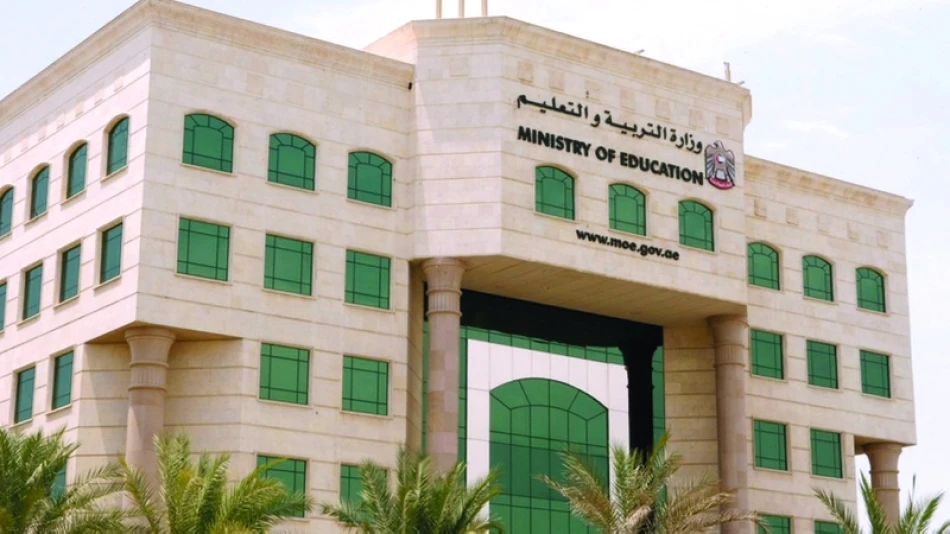
Explore Continuous Learning Pathways: Ministry of Education Announces Registration for Integrated Programs
The UAE Ministry of Education has opened registration for four different learning tracks under its Integrated Continuous Education system for the 2025-2026 academic year. Registration runs until November 14, offering flexible education options for citizens and residents who can't attend traditional schools due to age or other circumstances.
The ministry announced that applications must be submitted online through the "Integrated Continuous Education Registration Request" service on its official website. This system targets people who've passed the maximum age for regular public or private education, along with specific groups based on citizenship status.
**Four distinct educational paths are available:**
The General Academic Track serves female citizens, wives of citizens, and daughters of female citizens. It covers grades 7-12 with live online classes delivered remotely. This option provides full academic curriculum through digital platforms.
The Applied Track focuses on male citizens and sons of female citizens. It's a vocational program for grades 11-12 (levels 3 and 4) designed for students who've exceeded the age limit for regular education. Students can transfer from the home study program to this track.
The Home Study Track opens to both citizens and residents. Students learn the ministry's curriculum independently from grades 7-12 without mandatory attendance. They take electronic exams while studying at their own pace. This suits people who've passed the age cutoff for traditional schooling.
The Literacy Track accepts males and females starting from age nine. It serves people who can't read or write through two phases - foundational and supplementary - covering grades 1-6.
**Testing determines placement in most programs.** For the literacy track, students take a level assessment at registration to place them in the appropriate foundational grade based on age and reading ability. Home study and general academic applicants for grades 7, 8, and 9 must take placement tests during the first examination period in April 2025.
The ministry emphasized that registration is mandatory for all students, including those who studied at home last year. This ensures updated records and fee payment for the new academic year. Students who took third-period exams must wait for results before completing registration.
**Here's what makes this system significant:** The UAE is expanding access to education for people who fell through traditional cracks. Many adults and older teens couldn't finish school due to work, family obligations, or other life circumstances. These flexible tracks let them continue learning without disrupting their current situations.
The electronic examination system maintains academic standards while offering convenience. Students can prove their knowledge and earn recognized credentials without attending physical classrooms. This approach particularly benefits working adults and parents who need education but can't commit to regular school schedules.
The ministry stressed that acceptance depends on meeting specific criteria for each track and category. All applicants should review requirements and required documents before applying through the designated link on the ministry's website.
This initiative reflects broader trends in Middle Eastern education systems adapting to diverse student needs. As economies modernize and job markets become more competitive, governments recognize that education access shouldn't end at arbitrary age limits. Flexible learning options help build more skilled workforces while giving individuals second chances at academic advancement.
Most Viewed News

 Sara Khaled
Sara Khaled






